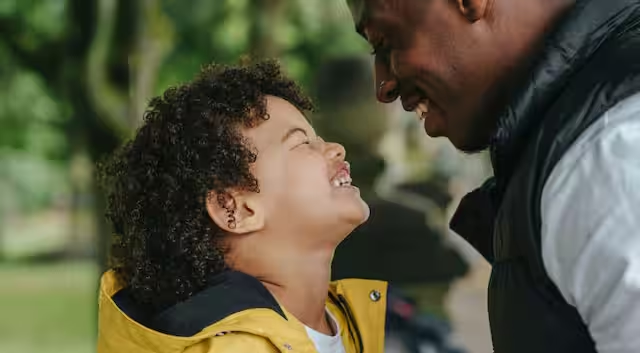Desire a stronger bond with your children? According to a recent study, laugh more.
A recent research that emphasized the value of laughing with your children found that parents who use humor have a highly favorable relationship with their kids.
Two key findings emerged from the US pilot study conducted by Penn State University: first, children of parents with good humor sense thought more favorably of their connection as adults, and second, parents who utilized humor had stronger relationships with their children.
According to Benjamin Levi, the study’s primary author, humor “may teach people cognitive flexibility, relieve stress, and promote creative problem solving and resilience,” as reported by ScienceDaily.
My father employed humor, and it worked wonders. “I use humor with my own kids and in my clinical practice,” said Levi, a pediatrics professor at Penn State College of Medicine. “The question became, how does one constructively use humour?”
How the research was carried out
312 respondents between the ages of 18 and 45 were polled by the researchers for the study that was published in the journal PLOS One.
More over half of those surveyed felt their parents were humorous. Furthermore, 71.8% of respondents said humor may be a useful parenting strategy. The majority of respondents think that humor has more potential benefits than drawbacks and either use it now or plan to use it with their kids.
According to ScienceDaily’s article on the study, of the kids who had humorous parents, 50.5% claimed they had a good relationship with them and 44.2% said they thought their parents raised them well.
Those whose parents did not utilize humor were in sharp contrast to this. Just 2.9% of respondents who said their parents didn’t utilize humor later in life said they had a good relationship with them. Merely 3.6% of the participants expressed their belief that their parents raised them in an effective manner.
“My hope is that people can learn to use humour as an effective parenting tool, not only to diffuse tension but develop resilience and cognitive and emotional flexibility in themselves and model it for their children,” Levi stated.

